St. Dominic, faithful servant of God, you preached the truth with zeal and humility. Intercede for us, that we may be strengthened in our faith, guided by your example of love, prayer, and devotion. Help us to follow Christ with courage and devotion, and to spread His light to those around us. Amen.
ST. DOMINIC
ST. DOMINIC
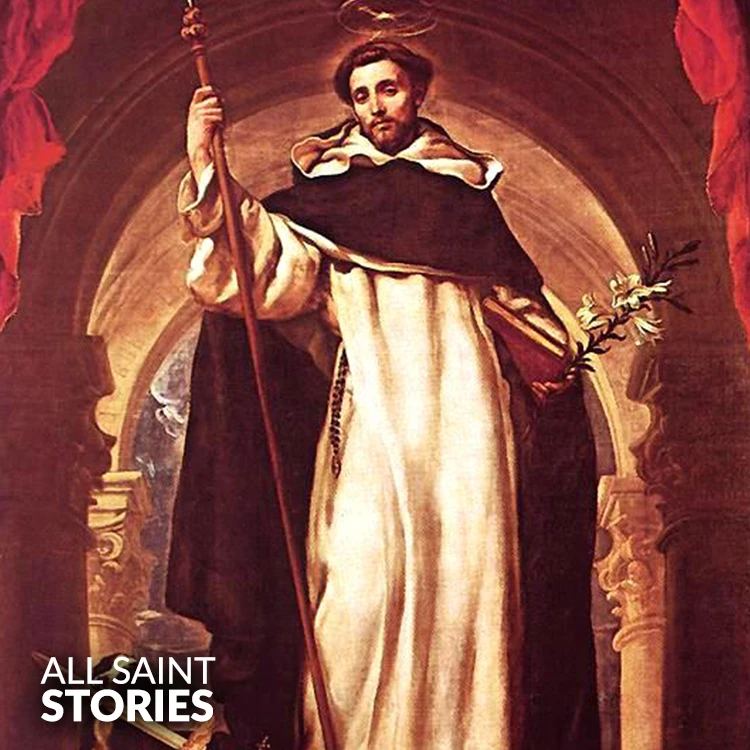
Saint Dominic, the founder of the Dominican Order, was a Spanish priest and missionary known for his commitment to preaching and combating heresy. He founded the Order of Preachers (Dominicans) in 1216 to spread the Gospel through preaching, teaching, and prayer. His feast day is celebrated on August 8.
Saint Dominic de Guzmán, born in 1170 in Caleruega, Spain, was a Spanish priest and the founder of the Order of Preachers, commonly known as the Dominicans. He was raised in a noble family and studied theology and the liberal arts at the University of Palencia. Even as a young man, Dominic displayed a deep commitment to the Christian faith and a concern for the spiritual well-being of his fellow humans. His early life was marked by a strong sense of charity and devotion to prayer, and these values would later become foundational principles in his religious work.
In the early 1200s, while traveling in southern France, Dominic became deeply concerned with the spread of heresy, particularly the Cathar heresy, which rejected many of the teachings of the Catholic Church. Witnessing the negative impact of these beliefs, he realized that the most effective way to combat heresy was not through violence or force, but through preaching the truth of the Gospel. This experience led him to dedicate his life to the preaching mission and to forming a new religious order that would focus on preaching, teaching, and combating heresy.
In 1216, Saint Dominic founded the Dominican Order (the Order of Preachers), with a focus on poverty, chastity, and obedience, as well as a commitment to intellectual rigor and theological training. The Order’s mission was to spread the Gospel through preaching, education, and the promotion of a life of prayer and study. The Dominicans became well known for their contributions to theological scholarship and were instrumental in the fight against various heresies in medieval Europe.
Dominic’s approach to religious life emphasized the importance of study and prayer, and he sought to create an order that balanced active engagement with the world and deep devotion to God. The Dominicans were also encouraged to live in poverty and to rely on alms for support, reinforcing the order’s commitment to humility and service to the poor.
Saint Dominic’s influence on the Catholic Church was profound, and his work helped shape the future of religious orders and preaching. His emphasis on learning, preaching, and the fight against heresy set a model for other religious orders to follow. Saint Dominic was also known for his devotion to the Rosary, a form of prayer that became deeply associated with his order. Though he is not the founder of the Rosary itself, it is said that he promoted the devotion as a powerful tool for prayer and meditation.
Saint Dominic died on August 6, 1221, in Bologna, Italy, after a lifetime of service to the Church. His canonization was expedited due to the widespread recognition of his holiness and his contributions to the Church, and he was canonized by Pope Gregory IX in 1234, just 13 years after his death. His tomb in the Basilica of San Domenico in Bologna remains a place of pilgrimage for many Catholics.
Saint Dominic's legacy is still felt today through the Dominican Order, which remains one of the most active and influential religious orders in the Catholic Church. Dominicans continue to spread the Gospel, engage in scholarly work, and serve in missions around the world. Their charism of preaching, teaching, and commitment to truth is a testament to the vision and mission that Saint Dominic established in the 13th century.
Video Not Found
The information on this website is compiled from various trusted sources. While we aim for accuracy, some details may be incomplete or contain discrepancies.
If you notice any errors or have additional information about this saint, please use the form on the left to share your suggestions. Your input helps us improve and maintain reliable content for everyone.
All submissions are reviewed carefully, and your personal details will remain confidential. Thank you for contributing to the accuracy and value of this resource.
Credits & Acknowledgments
- Anudina Visudhar (Malayalam) – Life of Saints for Everyday
by Msgr. Thomas Moothedan, M.A., D.D. - Saint Companions for Each Day
by A. J. M. Mausolfe & J. K. Mausolfe - US Catholic (Faith in Real Life) – Informational articles
- Wikipedia – General reference content and images
- Anastpaul.com – Saint images and reflections
- Pravachaka Sabdam (Malayalam) – Saint-related content and insights
We sincerely thank these authors and platforms for their valuable contributions. If we have unintentionally missed any attribution, please notify us, and we will make the correction promptly.
If you have any suggestion about ST. DOMINIC
Your suggestion will help improve the information about this saint. Your details will not be disclosed anywhere.
© 2026 Copyright @ www.allsaintstories.com

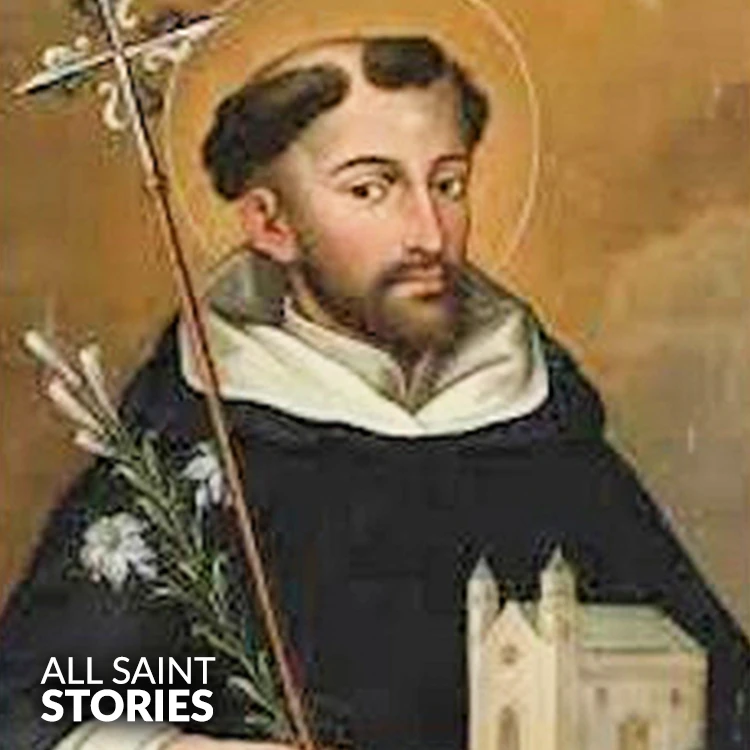
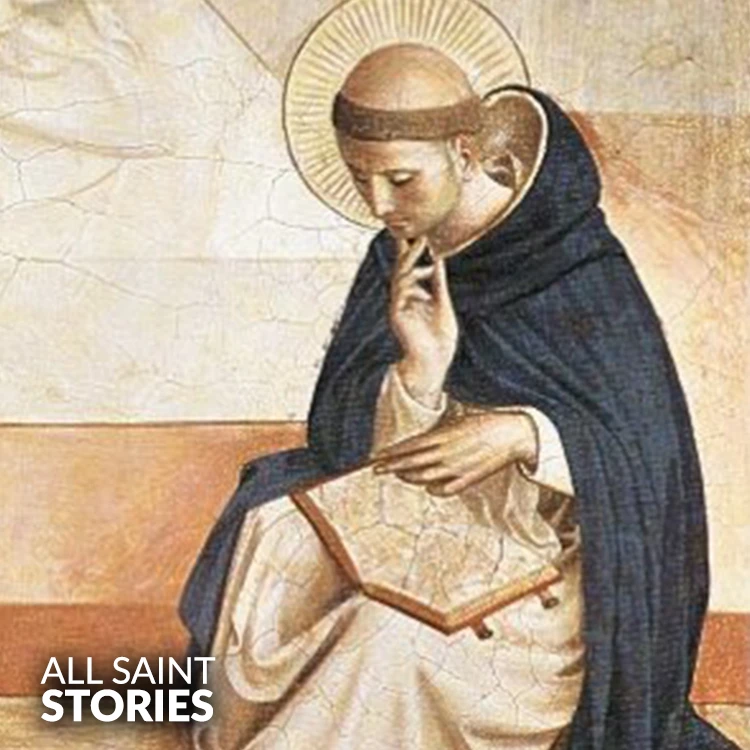
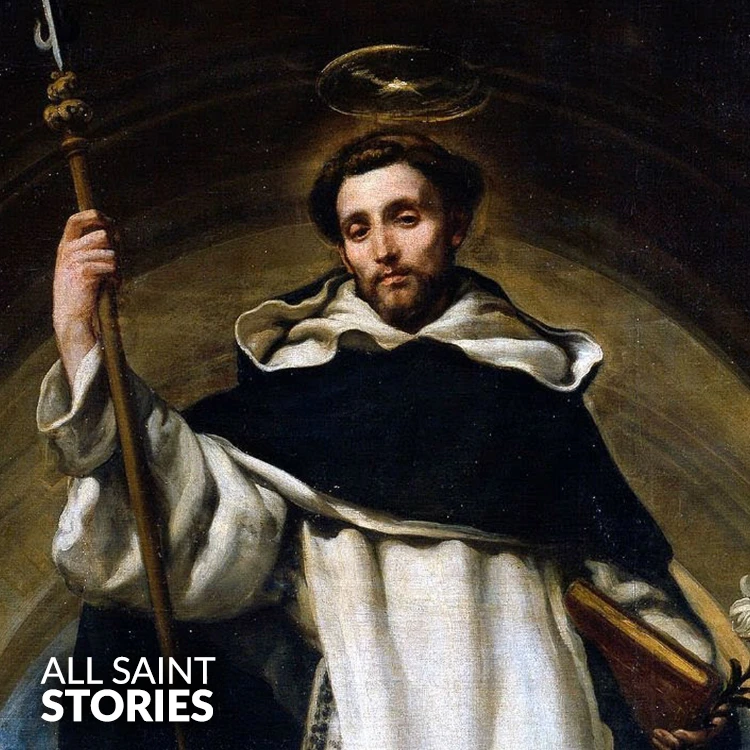
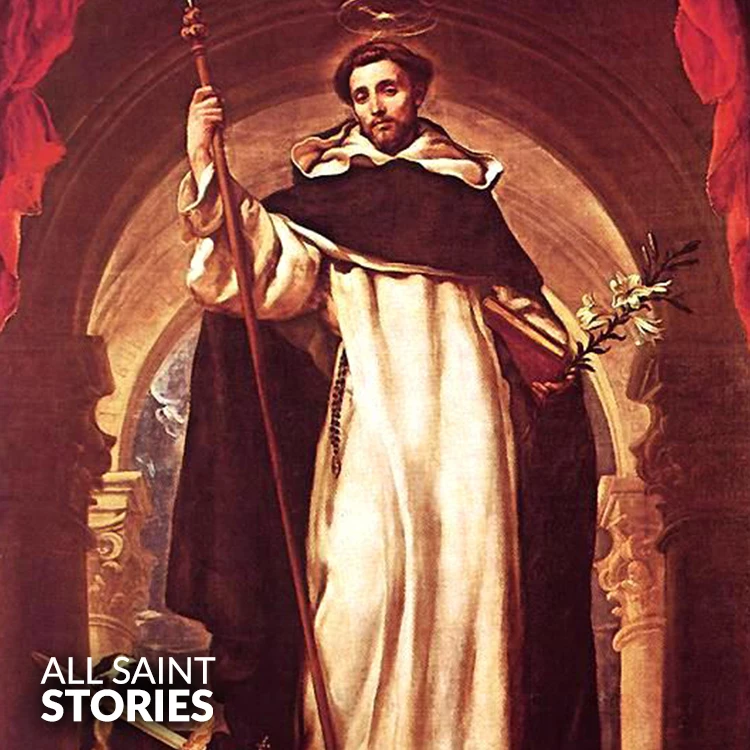

 English
English
 Italian
Italian
 French
French
 Spanish
Spanish
 Malayalam
Malayalam
 Russian
Russian
 Korean
Korean
 Sinhala
Sinhala
 Japanese
Japanese
 Arabic
Arabic
 Portuguese
Portuguese
 Bantu
Bantu
 Greek
Greek
 German
German
 Dutch
Dutch
 Filipino
Filipino